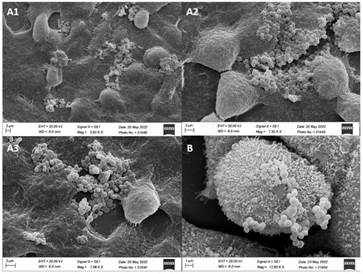Pune: Scientists at the Agharkar Research Institute (ARI) Pune have uncovered a new strain of lactic acid bacterium that could revolutionize the use of probiotics beyond the traditional dairy industry. The strain, named Streptococcus thermophilus MCC0200, has shown remarkable potential for broader probiotic applications, thanks to its unique genetic and functional properties.
The research, conducted by ARI, an autonomous institute under the Department of Science and Technology, involved a collaborative genome analysis to explore the hidden potential of S. thermophilus, widely known for its role in dairy product fermentation. The genetic investigation of strain MCC0200 revealed a wealth of genes associated with gastrointestinal survival, intestinal adhesion, and various health-promoting functionalities, highlighting its probiotic capabilities.
One of the significant challenges for any probiotic is surviving the journey through the human digestive system. In vitro studies demonstrated that MCC0200 not only withstands the harsh conditions of the gastrointestinal tract but also shows remarkable resilience against gastric juices and bile acids, essential factors for probiotic efficacy.
Published in the journal Microorganisms, the study delved into the genome of MCC0200, uncovering genes responsible for acid tolerance and bile resistance. These findings shed light on the molecular mechanisms that underpin the strain’s survival strategy in the digestive tract.
Moreover, MCC0200 exhibits a strong affinity for intestinal surfaces, enhancing its ability to interact with host cells. This adhesion to mucosal surfaces is crucial for promoting gut health and immune function. The strain also demonstrated the ability to auto-aggregate and co-aggregate with pathogenic bacteria, essential traits for competitive exclusion and gut colonization.
The research also highlighted MCC0200’s antioxidative properties, significant for gut health. The strain’s ability to scavenge reactive oxygen species positions it as a protector of gut redox balance, offering protection against oxidative stress-induced damage.
In addition to its survival and health-promoting properties, MCC0200 has been revealed as a nutrient powerhouse. Genome analysis uncovered the bacterium’s ability to produce essential vitamins, including folate (vitamin B9). Folate plays a crucial role in various cellular functions, and MCC0200’s capability to synthesize this vital nutrient underscores its potential as a nutritive supplement, especially for individuals deficient in these essential vitamins.
Furthermore, MCC0200 has shown promise in the battle against cholesterol. Studies demonstrated that this probiotic strain could assimilate cholesterol, potentially lowering serum cholesterol levels and reducing the risk of cardiovascular disease. While the exact mechanism is still under investigation, MCC0200’s cholesterol-lowering properties hold promise as a functional food ingredient with cardiovascular benefits.
As research into the health benefits of probiotics continues to evolve, Streptococcus thermophilus MCC0200 stands out as a promising candidate for food and pharmaceutical applications. Its unique combination of probiotic properties and safety profile paves the way for future innovations in gut health and beyond.
With further exploration and innovation, MCC0200 could lead to a healthier future for all, offering diverse health-promoting attributes and expanding the horizons of probiotic utilization.





